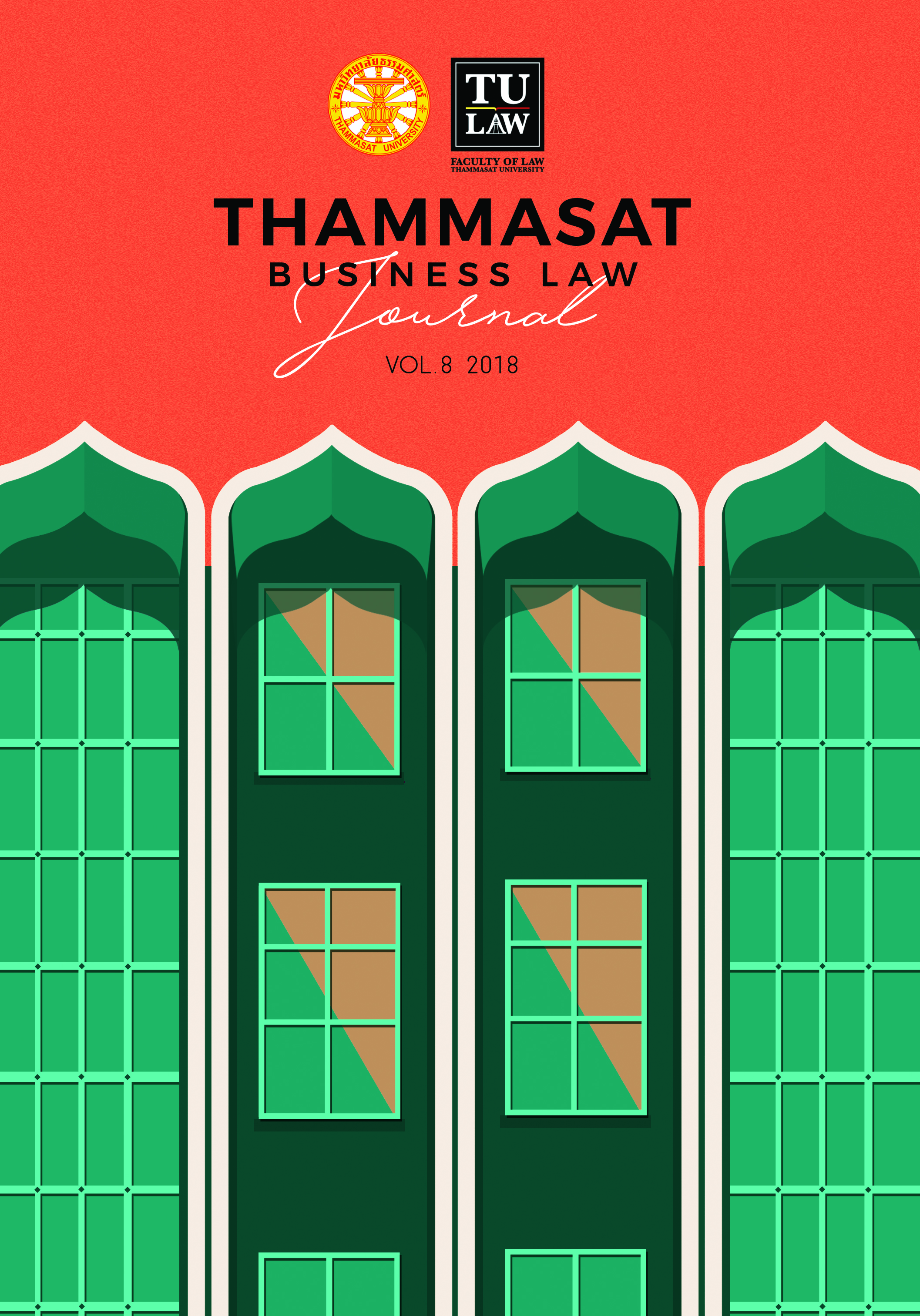Thai Legal Control and Liability of Living Modified Organisms: A Case Study of LMO Products
Main Article Content
Abstract
Nowadays the modern biotechnology has a significant role in several fields. However, despite the several advantages, there are also concerns about the risks of living modified organisms (LMOs) to the environment and human health.
Accordingly, the Cartagena Protocol on Biosafety (CPB) and the Nagoya - Kuala Lumpur Supplementary Protocol on Liability and Redress to the Cartagena Protocol on Biosafety (Supplementary Protocol) were issued.
Since Thailand is the Party to the CPB and is considering to ratify the Supplementary Protocol, Thailand has the obligation to provide necessary and appropriate legal control and liability regarding all operations associated with LMOs.
Yet, Thailand still has no specific law regulating LMO products, but relying on the existing regulations which resulting in an unsystematic control system.
Therefore, this article will point out the drawbacks and obstacles to the application of current regulations and propose the adequate legal control and liability on LMO products in Thailand.
Article Details
References
IUCN, Current Knowledge of the Impacts of Genetically Modified Organisms on Biodiversity and Human Health (2007)
Articles
Wang W, ‘International Regulations on Genetically Modified Organisms: U.S., Europe, China and Japan’ (2016)
Laws and Regulations
International Agreements
Cartagena Protocol on Biosafety to the Convention on Biological Diversity
Nagoya - Kuala Lumpur Supplementary Protocol on Liability and Redress to the Cartagena Protocol on Biosafety
Foreign Laws
National Bioengineered Food Disclosure Act
Regulation (EC) 1829/2003 on genetically modified food and feed (22 September 2003)
Thai Laws
The Notification RE: Specification of Food prohibited to produce, import, or distribute imposed that the genetically modified food containing the Cry9C DNA Sequence and the food contained such substance as ingredient shall be prohibited to produce, import, or distribute in the Kingdom of Thailand (No. 345) B.E. 2555 (2012)
Notification of the Ministry of Public Health Re: Labeling of food obtained through certain techniques of genetic modification / genetic engineering (No. 251) B.E.2545 (2002)
Thesis
Park M, ‘A Comparative Study of GMO Labeling and Liability Systems in the US, EU, and South Korea: The Circumstances and a Future Potential for Harmonization’ (Theses and Dissertations.Paper 4, Maurer School of Law, Indiana University 2014)
Kongdenfa T, ‘Obligation of Thailand regarding Biosafety Control Measures under the Cartagena Protocol on Biosafety to the Convention on Biological Diversity 1999’ (Master of Law, Thammasat University 2009)
Other materials
มติที่ประชุมคณะกรรมการนโยบายเศรษฐกิจระหว่างประเทศ (กนศ.) ครั้งที่ 5/2542 [The Resolution of the International Economic Policy Committee (IEPC) Conference No. 5/2542 (1999)] dated 18 October 1999

